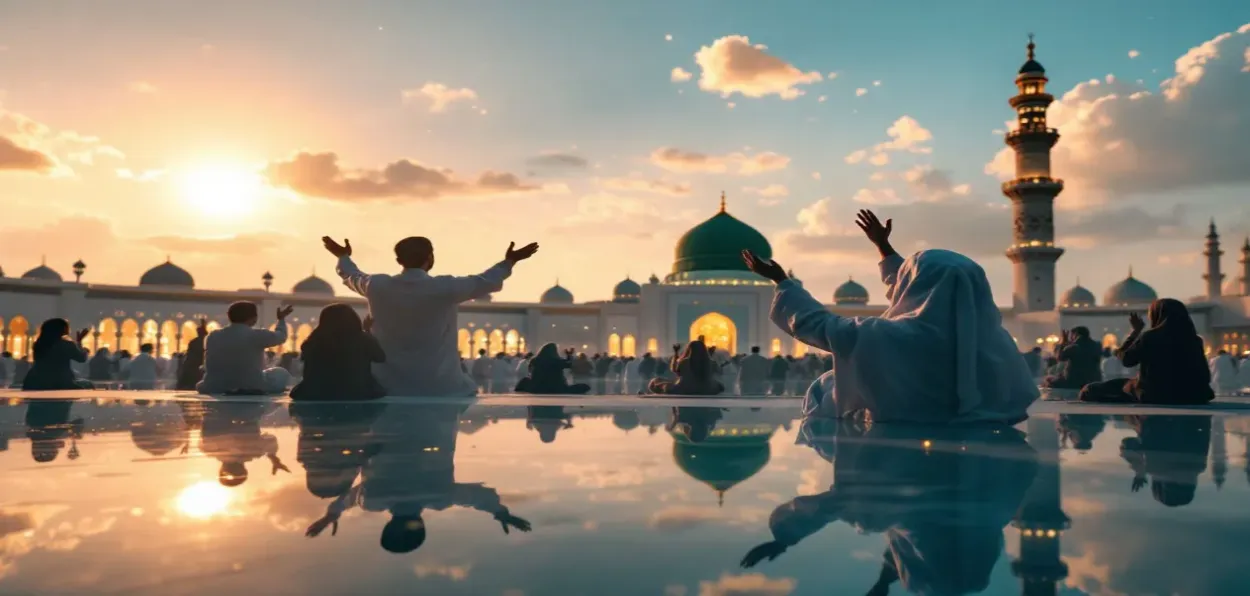
Eman Sakina
Eid Milad-un-Nabi, also known as Mawlid al-Nabi, is one of the most significant occasions observed by Muslims across the world. It commemorates the blessed birth of the Prophet Muhammad (peace and blessings be upon him), who was sent as a mercy to mankind and as a guide to lead humanity from ignorance into the light of faith, justice, and morality.
The Prophet Muhammad was born in Makkah in the year 570 CE, which came to be known as the Year of the Elephant. His birth was not only a source of joy for his family and community, but it became a turning point in human history. Allah Almighty describes him in the Qur’an: “And We have not sent you, [O Muhammad], except as a mercy to the worlds.” (Surah Al-Anbiya 21:107)
This verse reflects why Muslims hold his birth in such high esteem. His arrival symbolized hope, mercy, and guidance for a world engulfed in injustice, tribal conflicts, and moral decline.
Purpose of Celebrating Eid Milad-un-Nabi
The celebration of this day is not merely about marking a date in history; it is about remembering the noble character, teachings, and sacrifices of the Prophet. For Muslims, it is an opportunity to rekindle love for him, to reflect on his Sunnah (traditions), and to revive the message of Islam in their daily lives.
Muslims use this occasion to gather in mosques and community centres, where they recite verses from the Qur’an, narrate stories of the Prophet’s life, and send blessings upon him through Salawat. Speeches and lectures often highlight his kindness, humility, honesty, and compassion—qualities that Muslims are encouraged to emulate.
Eid Milad-un-Nabi is also a day of gratitude to Allah for blessing humanity with His final messenger. It serves as a reminder of the Prophet’s tireless efforts to spread Islam, his patience in the face of adversity, and his forgiveness even towards his enemies. Celebrating his birth strengthens the spiritual bond of Muslims with their beloved Prophet and renews their commitment to walk in his footsteps.
In many parts of the world, this day brings communities together in harmony. Streets and mosques are illuminated, processions are held, and food is distributed to the poor. These acts symbolize the Prophet’s own emphasis on charity, brotherhood, and caring for the less fortunate.
The way Milad-un-Nabi is celebrated varies across Muslim communities, but it is generally marked with devotion, remembrance, and gatherings that highlight the life and teachings of the Prophet Muhammad.
Recitation of Qur’an and Naat
Muslims gather in mosques or homes to recite verses from the Holy Qur’an and praise the Prophet through ‘Naat’ (poetic praises). These gatherings serve to remind people of the Prophet’s noble qualities and his message of mercy.
Lectures and Seerah Programs
Scholars and community leaders deliver talks on the Seerah (biography) of the Prophet. They highlight his role as a leader, teacher, and guide, and explain how his example can be applied in daily life.
Sending Blessings (Salawat)
Muslims abundantly recite Durood Sharif (salutations upon the Prophet), fulfilling the Qur’anic command:
"Indeed, Allah and His angels send blessings upon the Prophet. O you who have believed, ask [Allah to confer] blessings upon him and ask [Allah to grant him] peace." (Surah Al-Ahzab 33:56)
Charity and Feeding the Poor
On this blessed day, Muslims engage in acts of kindness such as feeding the needy, distributing sweets, and helping the underprivileged. This reflects the Prophet’s lifelong compassion towards the poor and orphans.
Processions and Decorations
In many Muslim countries, streets, mosques, and homes are decorated with lights, banners, and green flags (a colour associated with the Prophet). Processions are carried out where Muslims march together, reciting praises and sharing messages of unity and peace.
ALSO READ: How Jahangir Mallik's sari business boosts Shantinagar's economy, heritage
Community Meals
Special communal meals (Langar) are organized where food is served freely to everyone, regardless of social or economic background. This promotes brotherhood and equality, values that the Prophet emphasized throughout his life.
